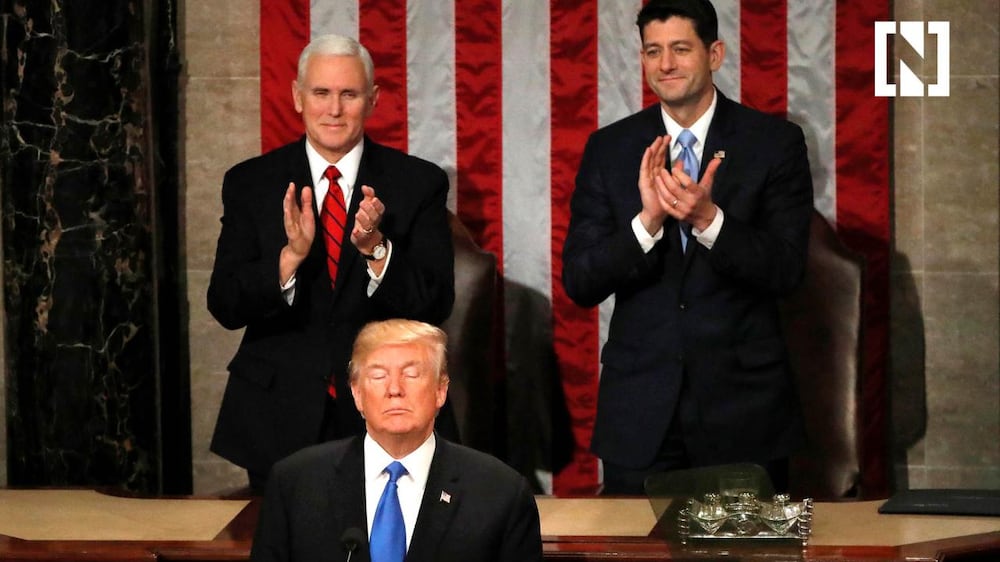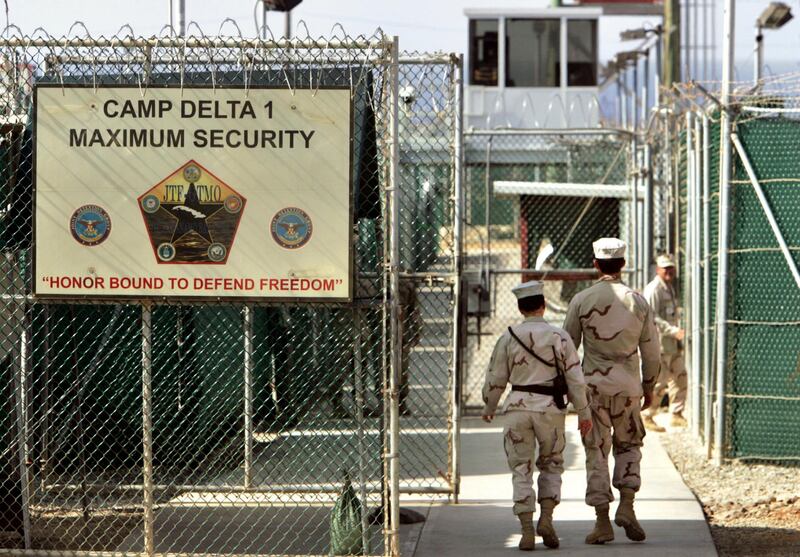There is perhaps no place more identified with the response to the September 11 attacks than Guantanamo Bay.
Pictures of detainees in orange jumpsuits shocked the world, but the detention facility in Cuba was justified as a necessary measure.
President Donald Trump's decision to keep it open, in an executive signed Tuesday, is heavily political as it formally reverses his predecessor Barack Obama's eight-year effort to shutter the prison.
It also points toward American intent to continue the war on terror, a term first used by George W. Bush after Al-Qaeda's airliner attacks in the United States in 2001.
Mr Obama wanted Guantanamo closed, saying in 2008 it would erode US "claims that we are acting on behalf of broader universal principles."
"We have to stand for human rights, it is harder for us to do it when we have situations like Guantanamo."
Fast-forward to Mr Trump's election campaign, however, and the tone was markedly different. Then not only did he want Guantanamo to remain open, he intended to "load it up with some bad dudes", a pledge he has yet to follow through on.
Trump takeaways: The key foreign-policy points from the State of the Union

The order, which Mr Trump signed just before delivering his first State of the Union address, says the US maintains the option to detain additional enemy combatants at Guantanamo when it is lawful and necessary to protect the homeland.
But critics and human rights groups warn that Guantanamo's system remains deeply flawed, preventing fair trials. Close to a thousand men have been held there, the vast majority without charge or trial. Nine detainees have died at the camp, six from suspected suicide.
According to Human Rights Watch, federal courts have been far more effective at prosecuting terrorism cases. "Nearly all of those detained at Guantanamo since its inception have, for one reason or another, been held in violation of applicable international humanitarian law or international human rights law."
But, said Mr Trump: "Terrorists are not merely criminals, they are unlawful enemy combatants. when captured oversees they should be treated like the terrorists they are."
The order authorises secretary of defence Jim Mattis to re-examine the country's detention policy and keep such facilities open.
"I am asking congress that in the fight against Isis and Al Qaeda we continue to have the necessary power to detain terrorists wherever we chase them down and find them," he said.
Guantanamo's use emerged in 2002. Human Rights Watch says it has seen ongoing torture of prisoners held on inaccurate evidence or mistaken identity. Nor were many detainees provided adequate means to challenge their detention.
Read more:
Trump declares 'new American moment' in State of the Union address







